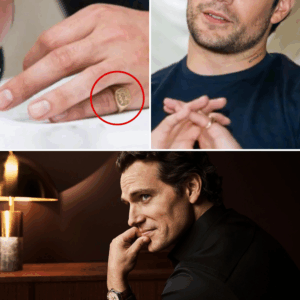Prince William and Prince Harry, the sons of King Charles III and the late Princess Diana, have long been subjects of public fascination, not only for their royal status but also for their personal lives and the evolving dynamics of their relationship. Both attended the prestigious Eton College, an elite all-boys boarding school in Berkshire, England, during their teenage years. Despite sharing the same educational environment, their recounted experiences at Eton were starkly different, with William describing a largely positive and integrated time, while Harry has spoken of feeling isolated and hurt. These contrasting narratives, detailed in Harry’s memoir Spare and various interviews, raise questions about the reasons behind their divergent experiences and the veracity of their accounts. This article explores the brothers’ high school experiences, the factors contributing to their differences, and the debate over whose perspective aligns more closely with the truth, drawing on credible sources and insights from former classmates.
Shared Beginnings, Divergent Paths
William and Harry’s educational journeys began similarly. Both attended Jane Mynors’ nursery school and Wetherby School in London before moving to Ludgrove School, a preparatory boarding school in Berkshire, where they shared a bedroom with other boys, an arrangement designed to foster a sense of normalcy despite their royal status. Their mother, Princess Diana, was instrumental in ensuring they had broader experiences beyond the palace, taking them to places like McDonald’s and homeless shelters to ground them in reality. By 1995, William, then 13, enrolled at Eton College, becoming the first senior royal to attend the institution, followed by Harry in 1998. Eton, founded in 1440 by King Henry VI, is renowned for educating British prime ministers, actors, and aristocracy, with a reputation for academic rigor and tradition.
At Eton, both brothers were subject to the same school rules and traditions, such as wearing the distinctive tailcoat uniform and signing a ceremonial book upon arrival. Former classmates noted that their royal status did not garner special treatment; they were simply “Wales” to their peers, with “HRH” noted in the school’s directory, Fixtures. However, their experiences diverged significantly, shaped by their personalities, roles within the royal family, and the emotional aftermath of their mother’s death in 1997, just a year before Harry joined William at Eton.
William’s Experience: The Popular Prince
Prince William, as the heir to the throne, reportedly thrived at Eton. Described by former classmate Jim as “very integrated,” William was elected to the prestigious Eton society known as “Pop,” a group of popular senior students who wore colorful waistcoats and enjoyed certain privileges. He was captain of the swimming team and his house football squad, embracing Eton’s traditions and earning the affection of both teachers and peers. Biographer Penny Junor noted William’s ability to adapt to the school’s environment, describing him as a “homecoming-king type.” His academic performance was strong, culminating in 12 GCSEs and three A-Levels (A in Geography, B in Art, C in Biology), paving the way for his studies at the University of St Andrews, where he met his future wife, Kate Middleton.
William’s positive experience was likely bolstered by his personality and position. Described by biographer Robert Lacey as “rambunctious” in childhood but “more reflective” at boarding school, William developed a quiet confidence, earning the nickname “my little wise old man” from Diana, who relied on him as a confidant in his early teens. His status as the future king may have also contributed to his social ease, as he was seen as a figure of authority and admiration among peers. Despite occasional press intrusion, an agreement with the Press Complaints Commission protected William from excessive media scrutiny, allowing him a relatively normal school life.
Harry’s Experience: The Struggling Spare
In contrast, Prince Harry’s time at Eton was marked by challenges and feelings of alienation. In his 2023 memoir Spare and a 60 Minutes interview with Anderson Cooper, Harry recounted a painful moment when William, already established at Eton, told him to “pretend we don’t know each other” at school. Harry described this as deeply hurtful, saying, “I couldn’t make sense of it. I was like, ‘What do you mean? We’re now at the same school. Like, I haven’t seen you for ages, now we get to hang out together.’” This directive, which Harry took personally, set the tone for his sense of isolation. He felt William was distancing himself to establish independence, a behavior Harry acknowledged as typical of older siblings but nonetheless damaging given their shared trauma of losing their mother.
Harry’s struggles extended beyond his relationship with William. Former classmates noted that he “had it harder finding his way,” describing him as less integrated than his brother. His academic performance was weaker, earning him 11 GCSEs and two A-Levels (B in Art, D in Geography), and he faced public scrutiny for poor grades, earning the nickname “Hash Harry” after experimenting with marijuana. A cheating allegation by a former teacher, later dismissed by an exam board, further tarnished his reputation. Harry admitted in Spare to smoking cannabis at Eton and struggling with aggression and anxiety, issues exacerbated by Diana’s death. In a 2015 speech in Cape Town, he confessed, “I didn’t enjoy school at all… I wanted to be the bad boy,” highlighting his rebellious streak.
The press was a significant burden for Harry, particularly during his parents’ divorce and Diana’s death. He recalled classmates discussing headlines about his family, which added to his sense of exposure and isolation. Unlike William, who was somewhat shielded by his status, Harry felt the weight of being the “spare,” a role he later explored in Spare, describing the emotional toll of being secondary to the heir.
Why the Experiences Differed
Several factors explain the stark contrast between William and Harry’s Eton experiences. First, their personalities played a significant role. William’s reserved, dutiful nature aligned with Eton’s structured environment, while Harry’s more impulsive, rebellious personality clashed with it. Royal expert Christopher Andersen noted that William resembled their father, Charles, in his discipline, while Harry’s temperament echoed Diana’s emotional openness, making him more vulnerable to Eton’s competitive atmosphere.
Second, their positions in the royal hierarchy shaped their experiences. As the heir, William was groomed for leadership, giving him a sense of purpose that bolstered his confidence. Harry, as the “spare,” lacked a clear role, which may have contributed to his feelings of aimlessness. This dynamic was evident in William’s election to Pop, a status Harry did not achieve, reinforcing his sense of being an outsider.
The timing of their mother’s death in 1997, when William was 15 and Harry was 12, also had a profound impact. Harry has spoken of his struggle to process Diana’s death, seeking counseling years later and using alcohol and recreational drugs to cope. William, while also affected, appeared to channel his grief into his responsibilities, as noted by Anderson Cooper, who highlighted their “very different ways” of dealing with the same trauma. Harry’s arrival at Eton just a year after Diana’s death likely intensified his emotional vulnerability, making William’s rebuff particularly painful.
Finally, the media’s treatment of the brothers differed. William benefited from a press agreement that limited coverage, while Harry faced harsher scrutiny, with tabloids mocking his academic struggles and personal behavior. This disparity likely amplified Harry’s sense of isolation compared to William’s more protected experience.
Who’s Telling the Truth?
Determining who is “telling the truth” is complex, as both brothers’ accounts reflect their subjective experiences rather than objective contradictions. William’s positive recollections are corroborated by classmates who described him as popular and integrated, suggesting his experience was genuinely favorable. Harry’s narrative of feeling left out is supported by his candid admissions of emotional and academic struggles, as well as classmates’ observations that he had a harder time fitting in. The incident of William asking Harry to pretend they didn’t know each other is not disputed by William publicly, and social media reactions suggest it could be typical sibling behavior, though some view it as insensitive given Harry’s need for familial support post-Diana’s death.
Both accounts likely hold truth, shaped by their perspectives. William, as the heir, may have downplayed any difficulties to maintain a composed public image, while Harry’s openness in Spare reflects his desire to address past hurts and challenge the royal narrative. The lack of direct contradiction from William suggests that Harry’s account of their interaction is plausible, though its emotional weight may be amplified by Harry’s vulnerability at the time.
Conclusion
The contrasting high school experiences of Prince William and Prince Harry at Eton College highlight the complex interplay of personality, royal roles, and personal trauma. William’s integration and popularity reflect his readiness for his future role as king, while Harry’s struggles underscore the challenges of being the “spare” in a high-pressure environment. Their differing responses to Diana’s death and the media’s scrutiny further shaped their experiences, with William finding stability in duty and Harry grappling with isolation and rebellion. Both brothers’ accounts appear truthful within their perspectives, offering insight into how their formative years at Eton laid the groundwork for their strained relationship today. As Harry noted in Spare, their shared trauma led to “two very different ways” of navigating life, a divergence that continues to shape their public narratives.





